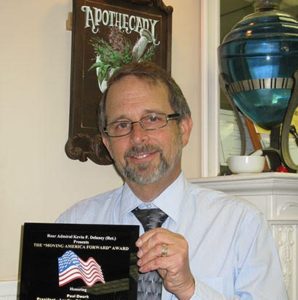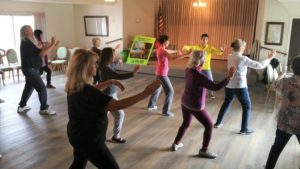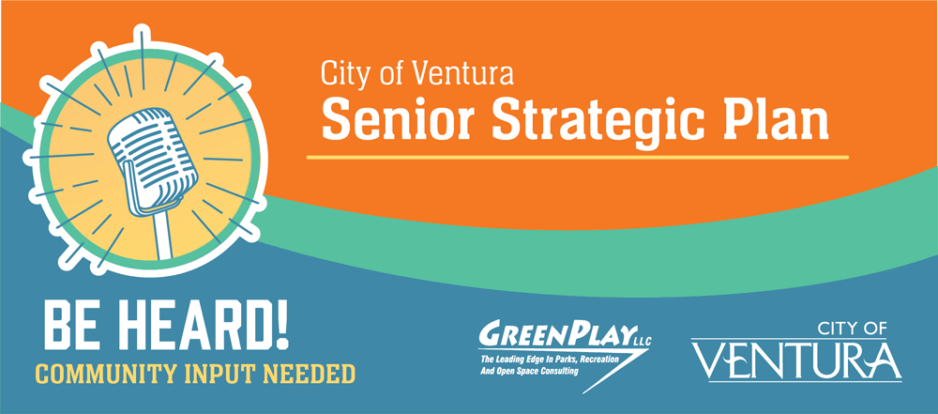The Ombudsman Program of Ventura County is looking for volunteers in the west county area to advocate for older, and dependent adults, living in long-term care facilities. Did you know that 60% of all older adult residents in skilled nursing facilities have no family or friends to speak for them? Join the LTC Ombudsman Program and make a difference in the lives of the forgotten, vulnerable older adults in your community. For more information about January training, please call Long Term Care Services of Ventura County, Inc., Ombudsman Program at 656-1986, and/or visit www.ombudsmanventura.org.
Category Archives: Senior Living
Holiday Magic and Laughter with the Ventura Parkinson’s Support Group

by Patty Jenkins
Get into the Holiday spirit on Wednesday, November 13, 2019, from 12:30-2:30PM, with the Ventura Parkinson’s Disease Support Group as we host one of Ventura County’s most talented magicians, Mr. Paul Dwork of Merlin Medical Supply. Join us as we celebrate making it though another year of “the seriousness of Parkinson’s” with some lighthearted magic by Paul followed by “the best medicine – laughter!” Lorelei Woerner-Eisner of the Wellness Arts Village will lead us in some Laughter Yoga and we’ll all leave with smiles to start the Holiday Season!
Paul Dwork is a Master Magician who performs at many fundraisers for various charities in Southern California including an annual show in Moorpark organized by the Rotary Club of Camarillo where proceeds go to worthy charities such as the Brain Injury Center of Ventura County. Paul has been performing magic since 1969 and has developed a reputation as “The Merlin of Magic”. He created his show in 1985 as a fund raiser for his children’s pre-school and continues to perform using Science and Magic as part of a magical experience for children of all ages.
Merlin Medical Supply in Camarillo is a great source for durable medical goods, specialty equipment for the physically challenged, which would include Parkinson’s, diabetic, incontinence and wound management supplies and other medical aids. Paul is an inventor of many products that help improve quality of life, which includes the GeeWhiz Condom Catheter for male incontinence.
Lorelei Woerner-Eisner is the Founder of Wellness Arts Village in Ventura (Grand opening in the Spring of 2020!). Lorelei has over 25 years of Occupational Therapy experience and more than 10 years as a yoga therapist in pediatrics, acute care, home health, rehabilitation, mental health, and skilled nursing. She is a regularly featured national speaker on various topics from an integrative perspective and has written several handbooks. Lorelei is a Fieldwork Educator with USC, on faculty with the Optimal State of Living program, and leads retreats. She is the developer of the Integrative Wellness Therapy method, which blends western medicine with research-based complementary techniques, with an emphasis on neurological concerns (Parkinson’s, Post-stroke, brain injury, dementia) and mental health (executive function, anxiety, depression, ADHD). She received her degree in Occupational Therapy from USC and her Yoga Therapy certificate from Loyola Marymount University and the Optimal State Method.
Join us for our last meeting of 2019 on Wednesday November 13, from 12:30 to 2:30 at Ventura City Hall’s Community Meeting Room # 202; 501 Poli Street. The Ventura Parkinson’s Disease Support Group welcomes the public along with those who find themselves navigating the challenges of Parkinson’s Disease and other neurological conditions. Hand-out resources available at every meeting. We are an independent and volunteer-organized group not affiliated with any other organization or group. For more information and important detailed directions to our meetings, please call Patty at 805-766-6070.
VCAAA’s HICAP team tackles Medicare Open Enrollment questions and concerns
 The Ventura County Area Agency on Aging’s Health Insurance Counseling & Advocacy Program (HICAP) is tackling all questions and concerns related to Medicare Open Enrollment by hosting a variety of one-stops throughout Ventura County through December 6th. All services are free and open to the public.
The Ventura County Area Agency on Aging’s Health Insurance Counseling & Advocacy Program (HICAP) is tackling all questions and concerns related to Medicare Open Enrollment by hosting a variety of one-stops throughout Ventura County through December 6th. All services are free and open to the public.
The transition to Medicare can be daunting and understanding plan options and the costs associated with each is often overwhelming. The VCAAA’s HICAP team is made up of highly trained counselors who provide free and unbiased assistance to Medicare recipients. Counseling services vary and are based on individual needs. Other services provided include a full assessment through the VCAAA’s Benefits Enrollment Center to determine eligibility for a variety of other benefits and services.
Medicare Open Enrollment One-stops are currently scheduled in Ventura, Ojai, Thousand Oaks, Moorpark, Oxnard, Simi Valley, Santa Paula, and Fillmore. For a complete list of dates and times, please visit https://www.vcaaa.org/our-services/medicare-help/ or call (805) 477-7310 or 1-800-434-0222.
This project was supported, in part by grant number 90SAPG0052-03-00, from the U.S. Administration for Community Living, Department of Health and Human Services, Washington, D.C. 20201.
Senior Strategic Planning Committee is looking for seniors to do an online survey
Ventura has a Senior Strategic Planning Committee that would love to hear from you.
There is a survey online where people can express their opinions, they can also fill out a paper form in a few places around town, and they can even write a letter.
Here is the link to the city site that tells people where and how they can express their opinions until October 30th: https://www.cityofventura.ca.gov/1662/Senior-Strategic-Plan
You have to live in Ventura to express your opinions, but you do not need to be a senior.
Staying at Home as You Get Older

Senior News Line
by Matilda Charles
Aging in place means that we remain in our home as we get older. Many of us want that … to stay where we’re comfortable and things are familiar. With enough advance planning and a few changes, it’s possible, but it means anticipating what our needs will be as we face the challenges of age.
For example, if you know you’ll be staying in your home, there are some things you’ll need to do in advance, basics like moving the master bedroom to the first floor, making the outside safe with better lighting and adding grab bars in the shower.
What about all the daily tasks you’ll no longer be able to handle — driving and mowing, meals and shopping — that you’ll need to hire others to do.
But what if you want to move first because your current environment isn’t what you’ll need?
Many of us are moving to aging-in-place communities. They’re loaded with amenities to keep us happy and healthy: libraries, grocery stores, buses and rides, lawn services and maintenance, meals in a dining room if desired, medical facilities, clubs, churches, classes — and the ability to upgrade to an assisted-living situation should it become necessary.
If you’re just now at the thinking stage, consider signing up for AARP’s free e-newsletter, Livable Communities (www.aarp.org). While it’s aimed toward community leaders and residents, it will give you some ideas about things you might want or need.
Look at the National Association of Area Agencies on Aging website (www.n4a.org) and put in your ZIP code to find aging resources near you. Call one or two to get more information. Ask for any to-do lists they have for aging in place.
Aging in place can work, but you need to plan for it.
(c) 2019 King Features Synd., Inc.
Volunteers needed to train as instructors for senior exercise programs

Volunteer leaders are needed for both RSVP Bone Builders and Tai Chi: Moving for Better Balance. No experience is necessary to become an instructor for either program, although the first training step is to attend a class and observe. Interested volunteers will need to attend training dates scheduled in October.
RSVP is an age 55+ volunteer engagement program that oversees the two distinct exercise programs designed for seniors. The program’s trained instructors make a difference in the lives of those enrolled in the class, as well as contribute to their own well-being by engaging in a regular exercise program. Both RSVP exercise programs are free and open to the public.
Volunteer positions are available in RSVP’s four-city service area of Oxnard, Ventura, Camarillo and Port Hueneme. Call 805-385-8023 to learn more about the training. To see current class locations, go to http://seniors.oxnardrec.org.
RSVP is a volunteer recruitment and placement program, helping people 55 and older find volunteer positions that match their interests, talent and available time. Oxnard RSVP has about 550 members and is locally sponsored by the City of Oxnard with grant funding from the federal Corporation for National and Community Service. To learn more about the benefits of being an RSVP member or for help finding a volunteer position, call 805-385-8019.
How to prevent falls in the home
by Lisa M Cini
Each year in the U.S. one in four people over 65 experiences a fall. It’s a common problem and can lead to a loss of independence, hospitalization, lack of confidence, and in some cases death. Avoiding falls in the first place is a vital aspect of living independently. Here’s how to prevent accidents in the home and make living independently a positive experience.
Assess Your Living Space. A few simple adjustments can mean the difference between falling and living independently safely. Take a minute to answer the following questions:
Is there a phone within easy reach?
Are there rugs on a polished floor surface?
How easy is it to get around your room?
Is clutter posing a hazard?
Do you need better lighting?
Get Safe Flooring. Making your floor as safe as possible is essential for preventing falls.
Invest in anti-slip tiles for bathrooms and kitchens to avoid sliding on water spillages or polished surfaces.
Make sure any rugs have anti-slip fixtures underneath to avoid slipping across the floor.
Consider a contrasting color for steps and rails to make them easier to see.
Since your feet spend so much time on the floor, make sure you have well-fitting shoes and slippers. Avoid flip-flops and flimsy footwear as these easily lead to trips and slips.
Consider the Lighting. Lighting equipped with sensors to come on when movement is detected is very helpful for stairs and bathrooms –or any room, really. Amber colored night lights help you see around the home at night and should be placed in stairs and bathrooms.
Install Handrails to Keep You Steady. Having a handrail in all high-risk places, such as the shower or stair, is another example of an easy adjustment to prevent falls.
Make the Garden Safe. Gardens are full of hazards so make sure your green space is as safe as possible.
Clear moss and old leaves from the paths to minimize the risk of slippery spaces.
When it is icy, make sure you lay some grit and have someone clear your paths.
Avoid too many pots and ornaments as they are easy to trip over.
Install lighting so you can see your way along paths in the dark.
Remember that you don’t have to do all the work in the garden or house yourself; you can get help from others to do the heavier jobs, which lessens your risk of falling.
Remove Clutter. Clearing clutter from steps and floors helps you avoid slips and trips. Don’t leave things lying around on the floor where they can cause a hazard. And avoid trailing wires when using electrical items.
Don’t stretch or balance on step ladders to get things on high shelves or awkward places, as it leads to falls.
Make sure you organize your living space so things you use frequently are within easy reach and you don’t need to climb on steps.
Avoid carrying too much at one time as this can set you off balance, resulting in a fall.
Join a Pilates / Yoga class or other exercise programs designed to help you avoid falling by maintaining good balance, core strength and posture techniques. Some exercises are chair-based, but most are gentle and set at a pace that the group can follow.
Footwear is important in the prevention of falls.
Give yourself time to adjust when moving from a sitting position. This helps you avoid dizziness from changes in blood pressure.
Taking these few easy steps to make your living space safer will help you avoid falls and stay independent for longer in your home.
Lisa is the author of The Future is Here: Senior Living Reimagined, Hive: The Simple Guide to Multigenerational Living, and BOOM: The Baby Boomers Guide to Leveraging Technology, so that you can Preserve Your Independent Lifestyle & Thrive.
Editor: Once again we have an article on fall prevention because it is so important for seniors.
Why family members wait too long to call hospice
by Anne-Marie Botek
It can be difficult to admit that a loved one’s health has declined so much that pursuing further curative treatment is either impractical or impossible. Choosing comfort care is usually the next step, but many patients and their family members hesitate or second-guess themselves when this delicate decision arises. However, families can lose out on valuable time with terminally ill loved ones if they wait too long to seek hospice care.
According to the National Hospice and Palliative Care Organization, 27.8 percent of Medicare hospice patients received comfort care for a week or less in 2017, and a whopping 50 percent of this cohort received care for less than 25 days. While hospice care is meant for individuals with an estimated life expectancy of six months or less, the data suggest that families are not seeking this specialized care until the last minute.
“The full benefits of hospice care cannot be experienced in just a day or two,” explains Myles Zuckerman, MD, team physician at Family Hospice and Palliative Care in western Pennsylvania. “It makes me sad to get calls from family members who realize their loved one is dying within a few hours or days because they can’t make the most of the care provided.”
Of course, a reluctance to talk about and accept death is part of why hospice is seen by many as a last resort, but a lack of information and even misinformation about the services hospice provides also contributes to delays in care.
The Benefits of Hospice Care
Terminally ill individuals often experience pain as they approach the end of life. One of the most well-known goals of hospice care is to enhance a dying person’s quality of life by alleviating as much of this pain as possible. The sooner a senior receives a hospice referral, the sooner they are able to get relief from pain and other physical symptoms in lieu of curative treatment.
But hospice care encompasses far more than symptom management. Multidisciplinary hospice care teams consist of multiple professionals, including physicians, nurses, aides, social workers, psychologists, volunteers, musicians, therapists and spiritual counselors. This team works together to help patients and their families cope with the physical, spiritual and emotional aspects of dying.
This holistic care approach and focus on maintaining quality of life can make it possible for a senior to have more pain-free time to spend with their loved ones. Furthermore, hospice care can reduce the likelihood that a patient will spend their final months in and out of the hospital—a common scenario that proves to be very stressful, upsetting and expensive to patients and families alike.
Help fight Medicare fraud
Con artists may try to get your Medicare Number or personal information so they can steal your identity and commit Medicare fraud. Medicare fraud results in higher health care costs and taxes for everyone.
Protect yourself from Medicare fraud. Guard your Medicare card like it’s a credit card.
Remember:
- Medicare will never contact you for your Medicare Number or other personal information unless you’ve given them permission in advance.
- Medicare will never call you to sell you anything.
- You may get calls from people promising you things if you give them a Medicare Number. Don’t do it.
- Medicare will never visit you at your home.
- Medicare can’t enroll you over the phone unless you called first.
Learn more tips to help prevent Medicare fraud.
Check regularly for Medicare billing fraud. Review your Medicare claims and Medicare Summary Notices for any services billed to your Medicare Number you don’t recognize.
Learn more about how to spot fraud.
Report anything suspicious to Medicare. If you suspect fraud, call 1-800-MEDICARE.
Born before 1955 or living with a disability?
by Rick Beavin, California Market President Humana
If you’re one of 56 million Americans eligible for Medicare, it’s important to understand coverage options when selecting your health plan for 2020. Research can take time, and many people find working with a licensed health insurance agent helpful when deciding between Original Medicare, Medicare Advantage plans, Prescription Drug Plans and Medicare Supplement plans. Answering these five questions can help you make an informed choice during the Medicare Annual Election Period, October 15 to December 7:
Are my doctors, hospitals and specialists in network? Most Medicare Advantage plans offer online tools to help you find doctors and hospitals that are in a plan’s network. A licensed agent can also help you look up hospitals and doctors to see if they’re in a plan’s network and taking new patients and confirm what’s in network if you’re a seasonal resident.
Which plans will cover my prescription drugs? Original Medicare does not cover most prescription drugs. Many Medicare Advantage plans include prescription drug coverage, or you can sign up for a Part D Prescription Drug Plan separately. A licensed agent can look up the medications you would like covered and help you estimate what the cost of each drug would be on a plan.
Are there new, innovative benefits I should consider? Beyond vision, hearing and dental coverage, if you aim to become healthier, look for fitness program benefits as many Medicare Advantage plans offer a gym membership. If you travel or appreciate technology, virtual doctors are helpful services when you can’t see a doctor right away. Most Medicare Advantage plans now offer transportation to doctor appointments and the gym.
Will a zero monthly premium plan save me money? Private insurers help keep premiums down through programs like disease and chronic care management, which help people better manage health conditions and, in turn, reduce medical costs. You’ll still need to pay your Medicare Part B premium, which covers medical services and preventive care. You might want to use the additional premium dollars you save for out-of-pocket medical costs, such as co-pays.
Do I need to sign up for Medicare Parts A and B if I’m still working? If you or your spouse have health insurance from an employer, you can delay enrolling in Medicare until the employment or the coverage stops. At that point, you’re entitled to a special enrollment period of up to eight months to sign up for Medicare without incurring any late penalties.
Resources are available to help you in this process, including licensed sales agents, local seminars, and websites such as medicare.gov and humana.com/Medicare. You can also call 1-800-MEDICARE (1-800-633-4227) (or TTY: 1-877-486-2048) 24 hours a day, seven days a week, or call Humana at 1-800-213-5286 (TTY: 711) 8 a.m. to 8 p.m. local time seven days a week.
As with any major decision, proper research will go a long way toward making the best plan choice for your personal health care needs.
